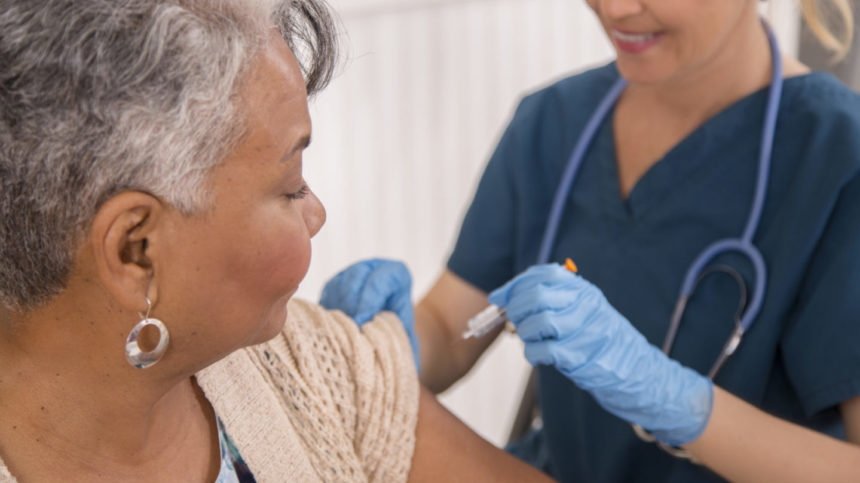
The Food and Drug Administration is expected to authorize a second omicron-specific booster for people 65 and older and those with comprised immune systems sometime later this month.
NPR reported the FDA was expected to announce its decision to authorize a second booster within the next two weeks.
People who are 65 and older will be eligible to receive their second booster of the Moderna or Pfizer vaccine, if it’s been at least four months since their first bivalent booster, and for those with weakened immune systems who got their first boosters at least two months ago, according to the news organization. The COVID-19 booster targets omicron subvariants BA.4 and BA.5 and the original novel coronavirus.
Consumers are encouraged to consult with their physicians before receiving a second booster.
“We continue to closely monitor the emerging data in the United States and globally, and we will base any decision on additional updated boosters upon those data,” the FDA said in a statement published in the Washington Post. “Importantly, individuals who have not yet received an updated (bivalent) booster are encouraged to speak with their healthcare provider and consider receiving one.”
The FDA had originally only authorized one booster with plans for an annual booster campaign starting this fall, but many healthcare professionals have advocating for a second booster to protect people at high risk of COVID-19.
Peter Hotez, MD, PhD, co-director of the Texas Children’s Hospital Center for Vaccine Development and dean of the National School of Tropical Medicine at Baylor College of Medicine, told NPR he supports the second booster, noting there is still an ample supply of the existing vaccines which will are expiring soon and will have to be thrown out if they’re not used.
“Historically, when you look at the monovalent vaccines, the protection starts to wane after four or five months,” Hotez wrote in an email to NPR of the FDA’s impending decision. “We don’t know if that’s the case with bivalent boosters. But you don’t want to find out the hard way.”



